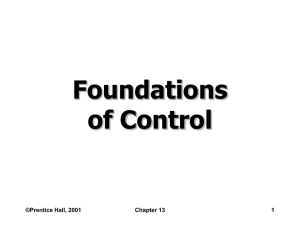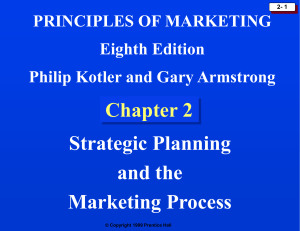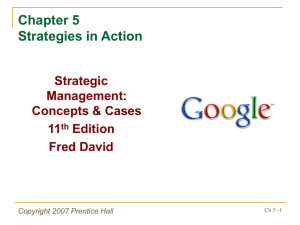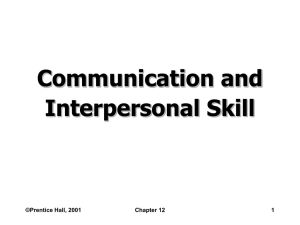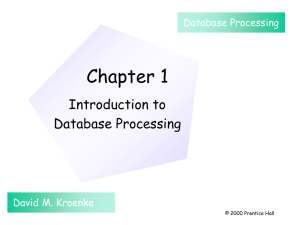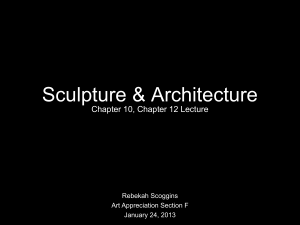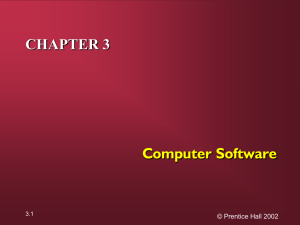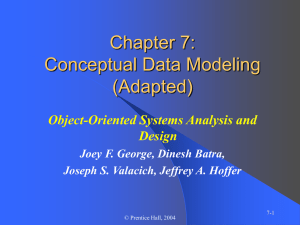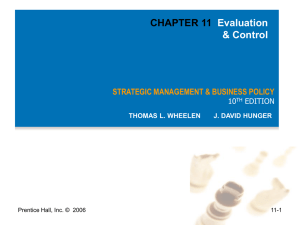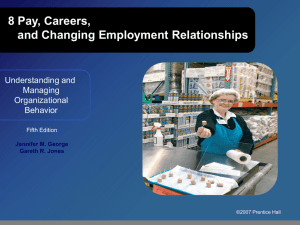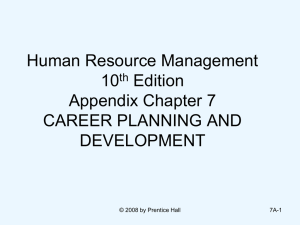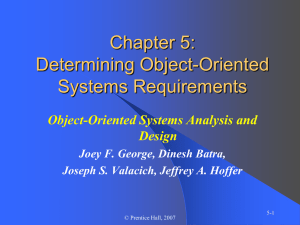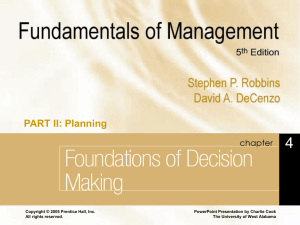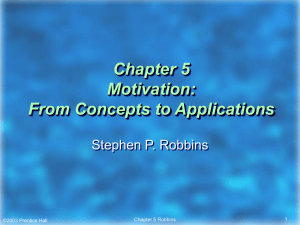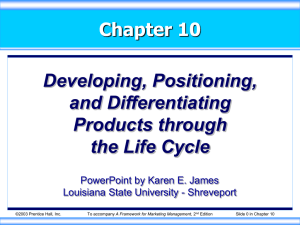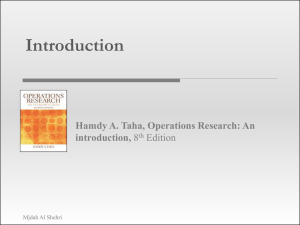Staffing and Human Resource Management
advertisement
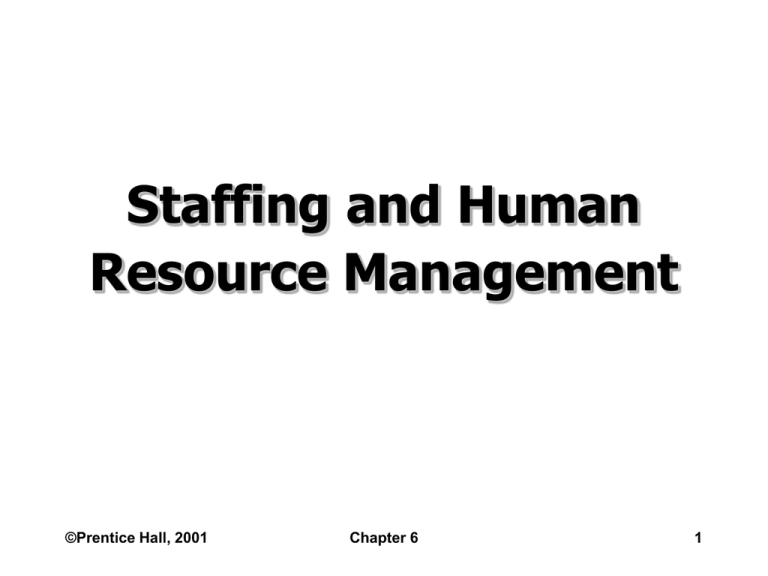
Staffing and Human Resource Management ©Prentice Hall, 2001 Chapter 6 1 Learning Outcomes • Describe the human resource management process • Learn how government regulations affect human resource decisions • Study job descriptions and job specifications • Contrast recruitment and downsizing options • Explain how validity and reliability impact selection ©Prentice Hall, 2001 Chapter 6 2 Learning Outcomes • • • • Review various selection devices Identify various training methods Review performance evaluation techniques Review compensation administration and factors that affect wage structures • Define sexual harassment, family-friendly benefits, labor-management cooperation, workplace violence, and layoff-survivor sickness ©Prentice Hall, 2001 Chapter 6 3 Human Resource Management Process Human Resource Planning Recruitment or Downsizing Training and Development Performance Appraisals Compensation and Benefits Safety and Health ©Prentice Hall, 2001 Selection of Employees Chapter 6 Orientation Competent High-Performing Workers 4 The Legal Environment of HRM Affirmative Action Employment ©Prentice Hall, 2001 Training Chapter 6 Retention 5 Human Resource Planning Making a Current Assessment Making a Future Assessment Designing a Future Program ©Prentice Hall, 2001 Chapter 6 6 School Placement Internal Searches Employee Referrals Traditional Recruiting Sources Employee Leasing Employment Agencies ©Prentice Hall, 2001 Temp Services Advertisements Chapter 6 7 Downsizing Options Firing Layoffs and Attrition Transfers Reduced Workweeks Early Retirements Job Sharing ©Prentice Hall, 2001 Chapter 6 8 Successful Reject Error Correct Decision Unsuccessful Selection Decision Outcomes Correct Decision Accept Error Reject Accept Selection Decision ©Prentice Hall, 2001 Chapter 6 9 Selection Devices Written Tests Performance Simulations ©Prentice Hall, 2001 Chapter 6 10 The Effectiveness of Interviews • Prior knowledge about an applicant • Attitude of the interviewer • The order of the interview • Negative information • The first five minutes • The content of the interview • The validity of the interview • Structured versus unstructured interviews ©Prentice Hall, 2001 Chapter 6 11 Well-Matched Applicants Realistic Job Previews Realistic Expectations Increased Commitment ©Prentice Hall, 2001 Chapter 6 12 Employee Orientation Smooth Insider-Outsider Transition Improve Work Performance Minimize Resignations ©Prentice Hall, 2001 Chapter 6 13 Employee Training • Determine strategic goals • Identify essential tasks • Determine critical behaviors • Assess deficiencies in skills, knowledge, and abilities ©Prentice Hall, 2001 Chapter 6 14 Job Rotation Classroom Lectures Understudy Assignments Training Methods Simulation Exercises ©Prentice Hall, 2001 Films and Videos Vestibule Training Chapter 6 15 Performance Appraisal Methods Written Essay Graphic Rating Scales Critical Incidents BARS 360-Degree Appraisal MBO ©Prentice Hall, 2001 Multiperson Chapter 6 16 Performance Problems on the Job Discipline Problems ©Prentice Hall, 2001 Employee Counseling Chapter 6 17 Compensation Administration • • • • • • • • Knowledge, skills, abilities Authority and responsibility Nature of the business The environment Geographic location Performance levels Seniority Compensation philosophy ©Prentice Hall, 2001 Chapter 6 18 Administration of Employee Compensation Determining Pay Levels ©Prentice Hall, 2001 Determining Benefits Chapter 6 19 Current HRM Issues Workforce Diversity Sexual Harassment ©Prentice Hall, 2001 Chapter 6 20 Current HRM Issues Family-Friendly Benefits Unions and Management ©Prentice Hall, 2001 Chapter 6 21 Current HRM Issues Workplace Violence Survivors of Layoffs ©Prentice Hall, 2001 Chapter 6 22
